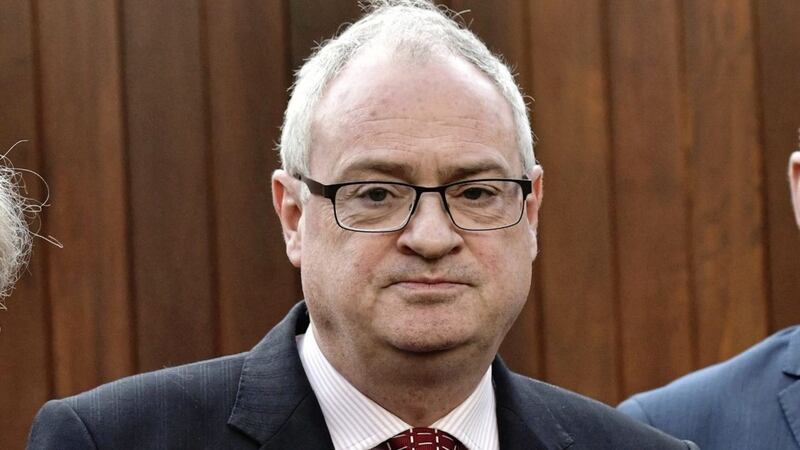Tally-ho. The SDLP and Sinn Féin took stock, thought of Brexit and decided against splitting the vote.
Sometimes it just takes sense, sometimes a little more. UDA threats to Ulster Unionists and considerable DUP indignation greeted the possibility of a UU standing against Nigel Dodds. Steve Aiken, the only person to put his name forward to be UU leader, took three days to muddy the possibility and six more to erase it. He blamed a ‘context of threats and intimidation.’ In the context he would have done better to stop there.
No one in a modern democracy should face such coercion, he went on. Appalling, totally reprehensible in Northern Ireland in the twenty first century. But. The UUs believe ‘first and foremost in the Union, and secondly in the importance of representative democracy’. So they will not be standing in North Belfast.
Across the water meanwhile, in paramilitary-free Britain, a Sunday headline read ‘Politicians warned; carry alarms and don’t go out alone or after dark.’ A raft of female MPs stood down in advance of the campaign because politics has simply become too unpleasant and dangerous. They cited the fearful side of social media, pumped-up anonymous haters, and the poison of Brexit. The irony is that in the midst of this dismay, warnings for example to candidates on the stump ‘not to enter people’s homes’, paramilitary threats to politicians here sounded like a throw-back from another age.
How memory can play tricks. Alliance councillors, MLAs, potential candidates took stones and petrol-bombs through windows, offices burned out, harassing phone calls, smears, during the ‘flags protest.’ Which was cranked up on the street after outbursts against Alliance by Ulster Unionists, as well as the DUP. It was only six years ago, though Steve Aiken may not have noticed.
The litany of attacks on politicians here is long and murderous. Or a perfect blank to those whose memories go back no further than their own youth or have been wiped by deliberate ignorance, or propaganda. How far back should we go? To the Twenties, and Unionist MP at Stormont William Twaddell, shot dead by two IRA men in 1922?
Some will have long forgotten Ulster Unionist Senator Jack Barnhill, killed by the Official IRA, his death reported at the time as the first ‘assassination’ since that of Twaddell. And Irish senator Billy Fox, also killed by Officials. Older Irish News readers will recall SDLP Stormont Senator Paddy Wilson, killed by the UDA.
Those who remember that the UDA tried to kill Bernadette McAliskey and her husband Michael on January 17 1981 might forget that four days later the IRA killed former Stormont Speaker Sir Norman Stronge and his RUC Reservist son James.
Loyalists attacked Anita Currie, wife of Austin. The homes of both Gerry Fitt and Paddy Devlin were attacked by republicans, as were the Devlin children. In Crossmaglen, a republican beating left the late John Fee badly injured. As Sinn Féin transformed from disregarded IRA mouthpiece, SDLP canvassing took steady aggression. On the road to peace, elections upped temperatures. West Belfast offices did not hum with activity, as republicans mocked tirelessly. They also attacked the buildings.
Decommissioning and acceptance of policing became extensible bargaining tools. That meant drawn-out intimidation of nationalists who joined ‘policing partnerships’ ahead of Sinn Féin’s imprimatur. Cue pipe-bombs at doors, shots at windows, cars vandalised in the Sperrins, south Derry, Derry City, Fermanagh.
Some imagine a lost ‘normality’ before the Troubles erupted. But Ian Paisley out-shouted a posse of religious and political fundamentalists to become the loudest opponent to civil rights. Would-be liberal unionists were repelled, and frightened away from politics. Barrister Dick Ferguson, for example, defeated the candidate from Paisley’s ‘Protestant Unionist Party’ and warned Stormont they would wreck the Union if they did not reform. After a bomb at the home of his young family he left politics.
The DUP, and come to think of it, the UDA, were founded the following year.








